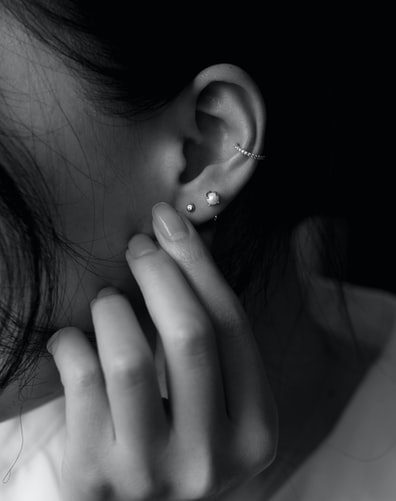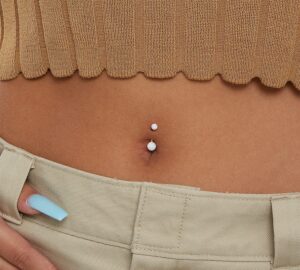Getting your ears pierced adds a new layer of character to your look, but since piercing holes in your skin is an invasive process, there are several things to keep in mind before and after you get your ears pierced. In this article, we will be looking into the dos and don’ts of piercings and how to take care of them till they heal.
Use an Antibacterial Soap to Clean
Once you get your new piercing, aftercare is crucial to ensure your ear does not get infected or irritable. The best way to go about it is by using an antibacterial soap to clean your ears. It is advised that you clean your hands properly before you apply the soap. Take water to rinse your ear before putting on the soap, so it is easier for your soap to lather. Repeat this step twice a day for quick healing.
Pro tip: Try to twist your ear piercing at different moments throughout the day to prevent skin from growing around a metal ring or stud.
Make a Sea Salt Solution
To facilitate healing, you should soak or spray your piercings with sea salt and distilled water solution. To make this solution, take 1/4 teaspoon of sea salt (non-iodized) and add it to a glass of lukewarm distilled water. Mix it well till all the salt is dissolved. For fast healing, soak your piercings in water or take a spray bottle and splash the water solution directly onto your ears where the new piercing is.
Avoid Irritable Products and Objects
Perfumes, hairsprays, and headphones are all various sources of bacteria accumulation; therefore, they should be avoided at all costs, especially when you just got a new piercing. Hairsprays and perfumes are common irritants that may end up causing discomfort and can even result in an infection. For a couple of weeks after getting the piercing, experts recommend that you avoid talking on the phone using the ear where you recently got a piercing. Wearing bulky over-the-head headphones should also be avoided since it can attract bacteria and may lead to an infection.
Use the Right Material for your Earrings
The jewelry you wear should be made out of the right material like surgical stainless steel, titanium, or nickel-free 14 karat gold. Wearing the right material of ear jewelry will make a huge difference in terms of the healing process. You should avoid wearing jewelry in your newly pierced ear that contains lead, such as sterling silver. Once your piercing has healed properly, and you don’t feel any pain, you can switch to wearing jewelry made out of other materials.
Opt for Sterilized Needles Instead of Piercing Guns
You must be cautious of where you get your ears pierced from – going to a reliable tattoo parlor, or piercing studio will limit the risks of your ears getting infected as they are professionally trained to perform safe techniques. Ask your piercing specialist to use sterilized needles instead of piercing guns to completely eliminate the chances of getting an infection. Piercing guns are not sterilized and used over and over again on different people in different areas of the body.




